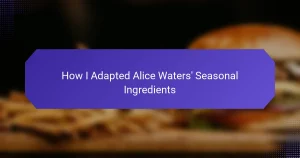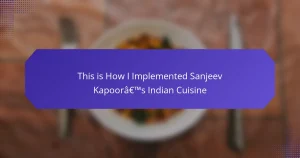Key takeaways
- Cooking challenges enhance creativity and culinary skills by encouraging experimentation with ingredients and techniques.
- Essential tools, such as a quality chef’s knife and measuring cups, greatly improve the cooking experience and precision.
- Participating in culinary adventures fosters connections with cultural traditions and transforms meal preparation into a meaningful experience.
- Preparation and embracing mistakes are key to successful cooking, turning challenges into opportunities for growth and enjoyment.
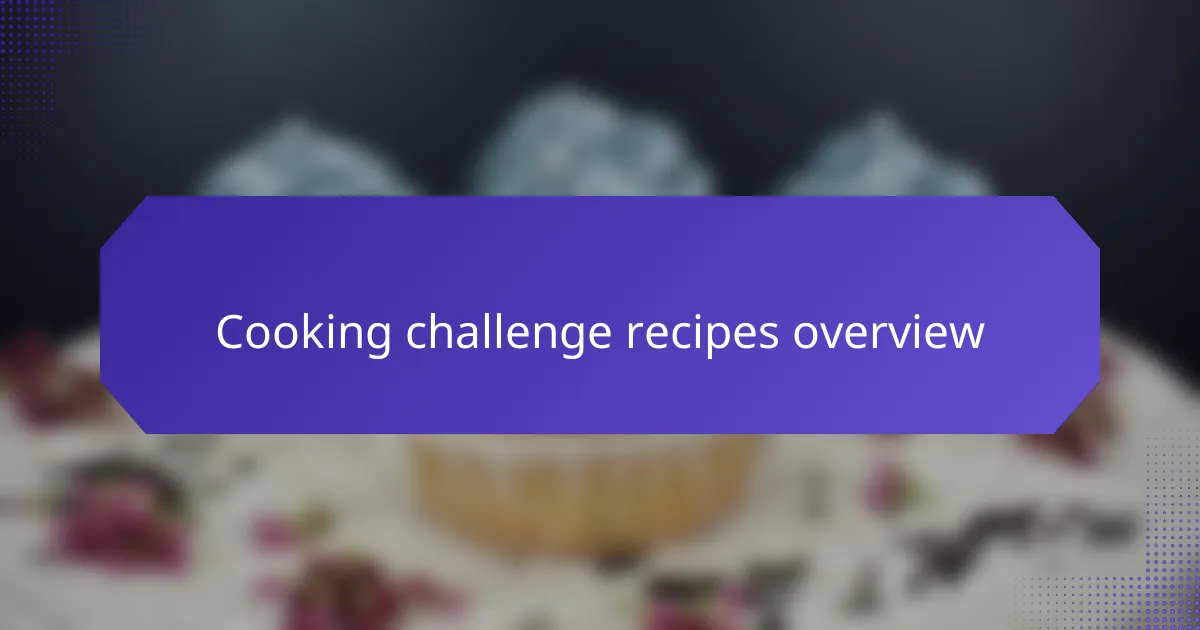
Cooking Challenge Recipes Overview
Cooking challenge recipes can be a thrilling way to test your culinary skills while having fun in the kitchen. I remember my first cooking challenge—it felt like a scavenger hunt where the prize was a delicious meal. These recipes often encourage creativity, pushing you to combine unexpected ingredients or try new techniques that you might not otherwise explore.
One of my favorites was a challenge based on seasonal ingredients. It not only honed my cooking abilities but also allowed me to connect with the food on a more personal level. I felt a sense of accomplishment when I successfully whipped up a dish that surprised both myself and my family. Cooking challenges are about experimentation and learning, and they can transform your perception of what’s possible in your kitchen.
Here’s a simple comparison table of different types of cooking challenge recipes that you might enjoy, showcasing their unique aspects and benefits:
| Recipe Type | Key Aspects |
|---|---|
| Seasonal Ingredients | Encourages creativity and freshness |
| Global Cuisine | Explores flavors from around the world |
| One-Pot Meals | Focus on simplicity and ease of cleanup |
| Food for a Cause | Combines cooking with a charitable mission |
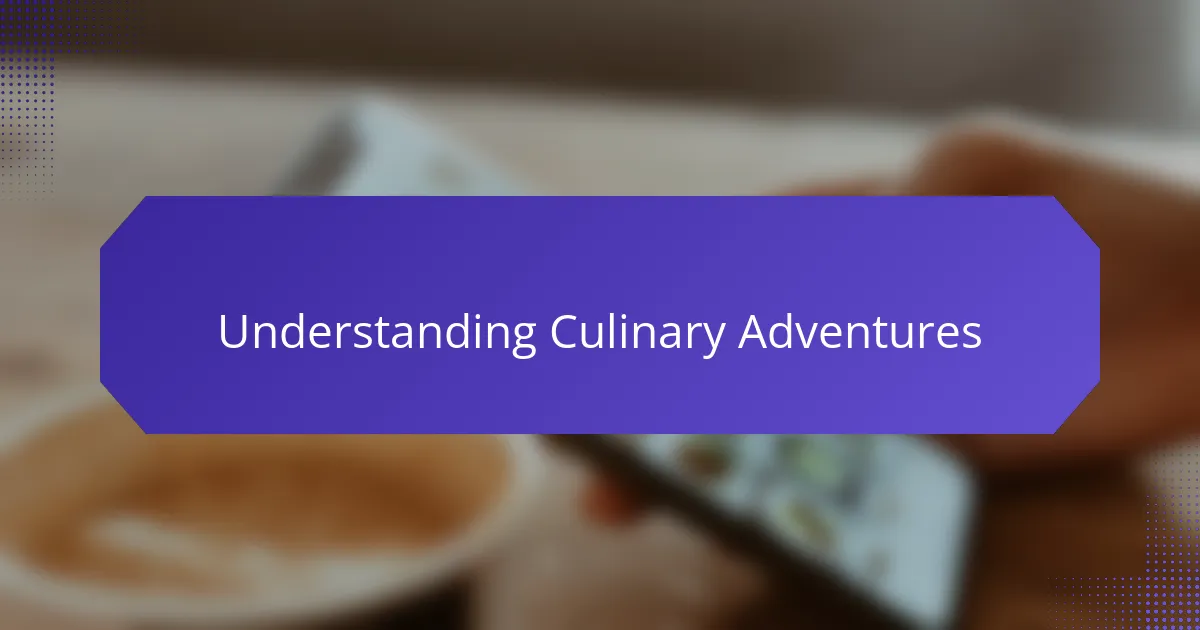
Understanding Culinary Adventures
Understanding culinary adventures goes beyond simply trying new recipes; it’s about embracing the stories and experiences that food brings into our lives. I vividly recall my first time experimenting with spices I had never used before. The thrill of that first bite, as the flavors hit my palate, was exhilarating and made me realize just how transformative cooking can be.
What I love most about culinary adventures is the opportunity to connect with different cultures and traditions. Each dish tells a story, much like how trying Tyler Florence’s recipes introduced me to rich Southern flavors that I had never experienced firsthand. It’s amazing how one plate can open up a world of new experiences.
Here’s a quick comparison of traditional cooking versus culinary adventures:
| Aspect | Traditional Cooking | Culinary Adventures |
|---|---|---|
| Focus | Familiar recipes and techniques | Exploring new ingredients and flavors |
| Mindset | Comfort and repetition | Curiosity and exploration |
| Outcome | Reliability | Discovery and growth |

Essential Tools for Cooking Challenges
When diving into cooking challenges, I found that having the right tools could make all the difference. During my own culinary adventures, I discovered that quality knives, kitchen scales, and a reliable sauté pan were my go-to essentials. It’s fascinating how a good chef’s knife can transform the prep time and elevate the dish, not to mention the satisfaction of slicing through ingredients with ease.
Another key element was investing in a set of measuring spoons and cups. Precision is crucial, especially when you’re trying out new recipes or experimenting with flavors. I remember a time when my measuring cups helped me achieve the perfect balance of spices in a chili recipe, turning a simple dish into a crowd-pleaser.
Essential Tools for Cooking Challenges:
– Quality chef’s knife
– Kitchen scale for precise measurements
– Versatile sauté pan
– Set of measuring spoons and cups
– Mixing bowls in various sizes
– Good quality cutting board
– Immersion blender for sauces and soups
– Non-stick baking sheets for easier cleanup
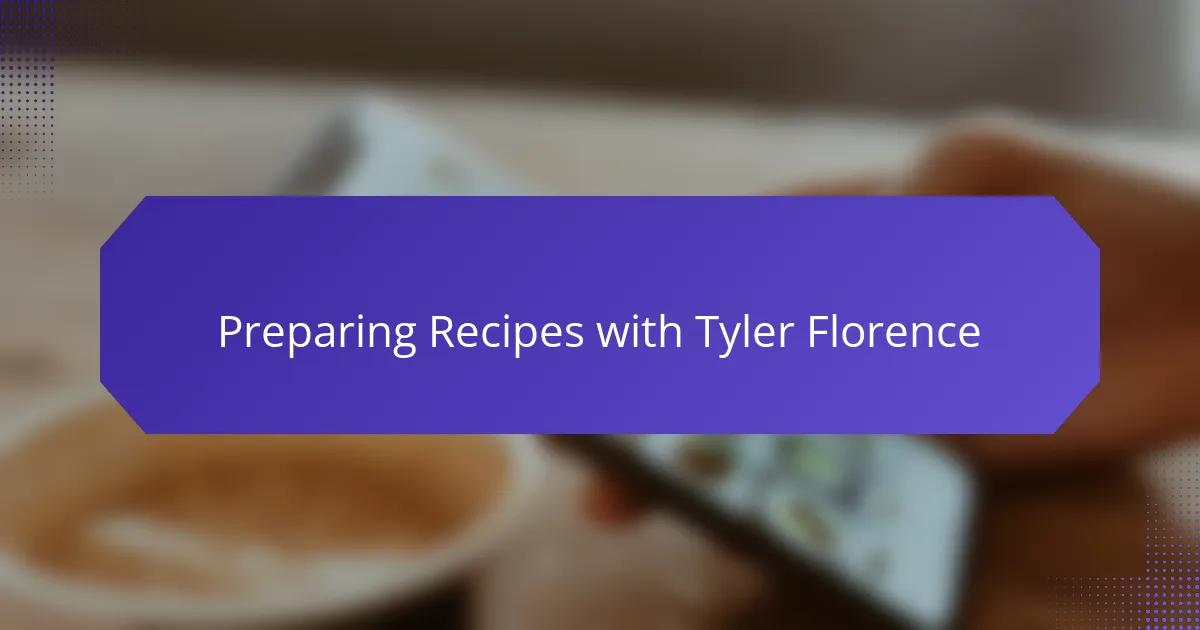
Preparing Recipes with Tyler Florence
Preparing recipes with Tyler Florence is not just about following instructions; it’s about immersing yourself in the art of cooking. I remember the excitement I felt when I first tried his famous Southern fried chicken. The process was more than just cooking; it was an experience. Adopting his techniques and flavors truly made me appreciate the rich culinary heritage of the South.
One particularly memorable recipe was his braised short ribs. The way he emphasized the importance of slow cooking struck a chord with me. As I simmered the meat for hours, the aromas wafted through my kitchen, transforming it into a warm and inviting space. Does cooking make you feel connected to your home? For me, it absolutely does. That dish turned out to be a highlight during a family dinner, where everyone savored every bite, showcasing just how special a meal can be when prepared with intention and care.
Florence’s emphasis on seasonal ingredients also reshaped how I approach cooking. I never thought a simple butternut squash soup could be so vibrant and flavorful. Following his recipe, I learned to let fresh ingredients shine, and it was a revelation. Have you ever had a dish that felt like a warm hug? That’s exactly how I felt when I served that soup. It taught me that with the right guidance, cooking can evoke emotions that go far beyond just satisfying hunger.

Personal Experiences with Culinary Challenges
When I think about my personal experiences with culinary challenges, I can’t help but feel a mix of excitement and anxiety. Participating in Tyler Florence’s culinary adventures pushed me out of my comfort zone. I vividly remember the first time I attempted his famous risotto recipe. The creamy texture and depth of flavor were hard to achieve, but each stir taught me the importance of patience in cooking.
Another memorable challenge was baking his signature chocolate cake. I felt the rush of joy when I saw it rise perfectly in the oven. The aroma that filled my kitchen was nothing short of bliss. I realized then that cooking isn’t just about following a recipe; it’s about the journey and the emotions you experience along the way.
It’s interesting to compare my experiences with different culinary challenges. They each have unique lessons that stick with me. Here’s a quick comparison of the challenges I’ve tackled:
| Challenge | Key Lessons Learned |
|---|---|
| Risotto | Patience and the art of stirring |
| Chocolate Cake | Joy in the process and importance of good ingredients |
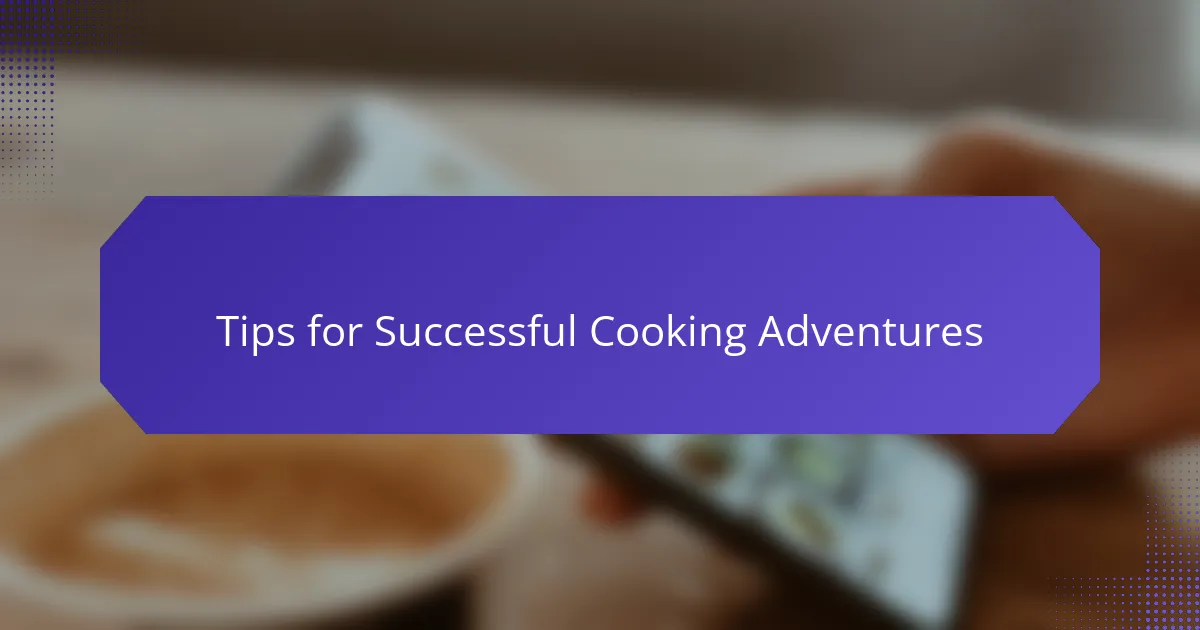
Tips for Successful Cooking Adventures
Before diving into your cooking adventures, it’s crucial to have a clear plan. I often find that outlining my recipe and gathering all ingredients beforehand eases any last-minute stress. Once, during a busy cooking challenge, I forgot to premeasure my spices, which led to frantic scrambles and less-than-ideal results. Have you ever experienced that chaos? A little preparation can transform your cooking experience.
Another tip is to embrace mistakes as learning opportunities. During one cooking challenge, I overcooked a vegetable, thinking it would enhance the flavors. Instead, it turned mushy and lost its vibrancy. Instead of getting discouraged, I used it as a lesson to really understand cooking times better. Mistakes can pave the way for growth, and I believe that is what makes culinary adventures so rewarding.
Finally, don’t forget to enjoy the process! Cooking should be as much about the journey as it is about the final dish. I remember laughing with friends while we attempted a tricky recipe, sharing stories and creating memories that felt just as important as the meal itself. How often do we rush through moments? Taking time to savor the experience can add a delightful layer to any cooking adventure.

